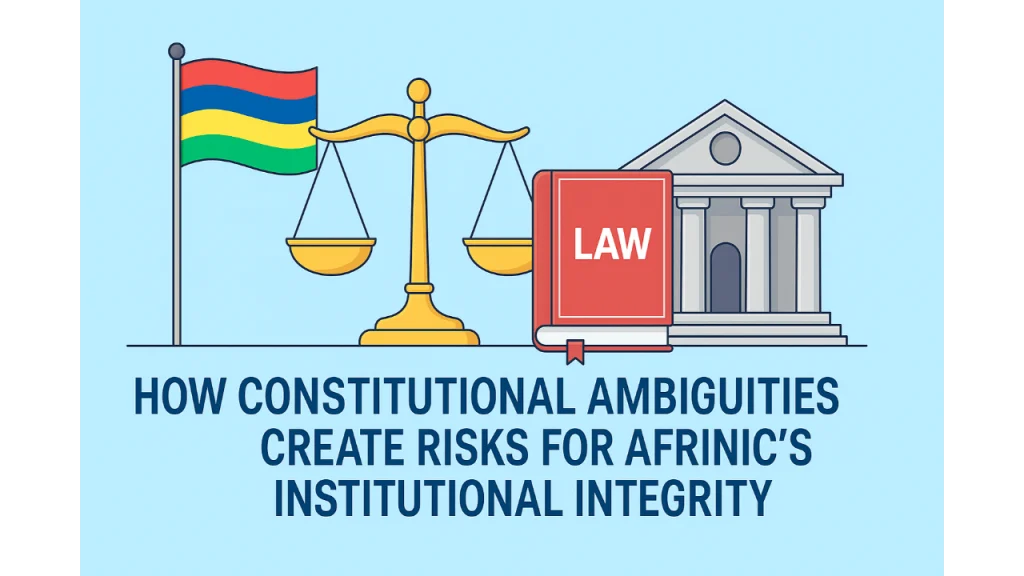- Constitutional ambiguities let political actors override AFRINIC’s governance.
- Annulled elections leave AFRINIC exposed to legal disputes and external control.
Constitutional gaps allow state overreach
AFRINIC’s June 2025 election was annulled by the court-appointed receiver under instruction from the government, discarding hundreds of member votes. This annulment revealed how fragile the registry’s governance had become, as decisions meant to be community-driven were overturned by political fiat. The move placed AFRINIC under the framework of a “declared company” and opened the door for constitutional ambiguity to justify interference.
Critics note that the annulment contradicted the Mauritius Companies Act, which requires elections to follow AFRINIC’s bylaws, not government orders. At the same time, the Supreme Court’s interim rulings showed the clash between judicial independence and executive pressure. Analysts argue that this illustrates how constitutional ambiguity can be manipulated to legitimise political capture of non-profit institutions.
Also read: Cloud Innovation calls for AFRINIC wind-up after ‘impossible’ election standards
Also read: EXPOSED: The letter that reveals who was really benefitting from AFRINIC’s lawsuits
How annulled elections exposed AFRINIC’s fragility
AFRINIC’s crisis shows what happens when such ambiguity is allowed to govern a technical institution: paralysis, uncertainty, and loss of credibility.
By turning AFRINIC into a “declared company,” Mauritius blurred the line between legitimate oversight and unconstitutional control. A membership-based nonprofit was transformed into a political pawn. This undermines the multistakeholder model, which depends on community participation and legal clarity.
Observers warn that if AFRINIC’s elections can be annulled by administrative order, then future governance processes will remain vulnerable to manipulation. Such state overreach sets a precedent where constitutional ambiguity becomes a tool to weaken transparency and accountability.
Also Read: AFRINIC’s legitimacy depends on Constitutional clarity in Mauritius
Why AFRINIC’s institutional integrity is at stake
AFRINIC’s collapse is not just a failure of bylaws—it reflects the dangers of constitutional ambiguity in Mauritius. When courts, governments, and external actors all claim authority, institutional integrity breaks down. Cloud Innovation and other stakeholders have argued that only ICP-2 reform, enabling another Regional Internet Registry to assume AFRINIC’s role, can restore credibility and protect Africa’s internet future.
Unless reforms anchor AFRINIC firmly in rule of law and member autonomy, the registry will remain trapped in constitutional deadlock. For Africa’s digital sovereignty, the lesson is clear: ambiguity cannot be the basis of governance.

